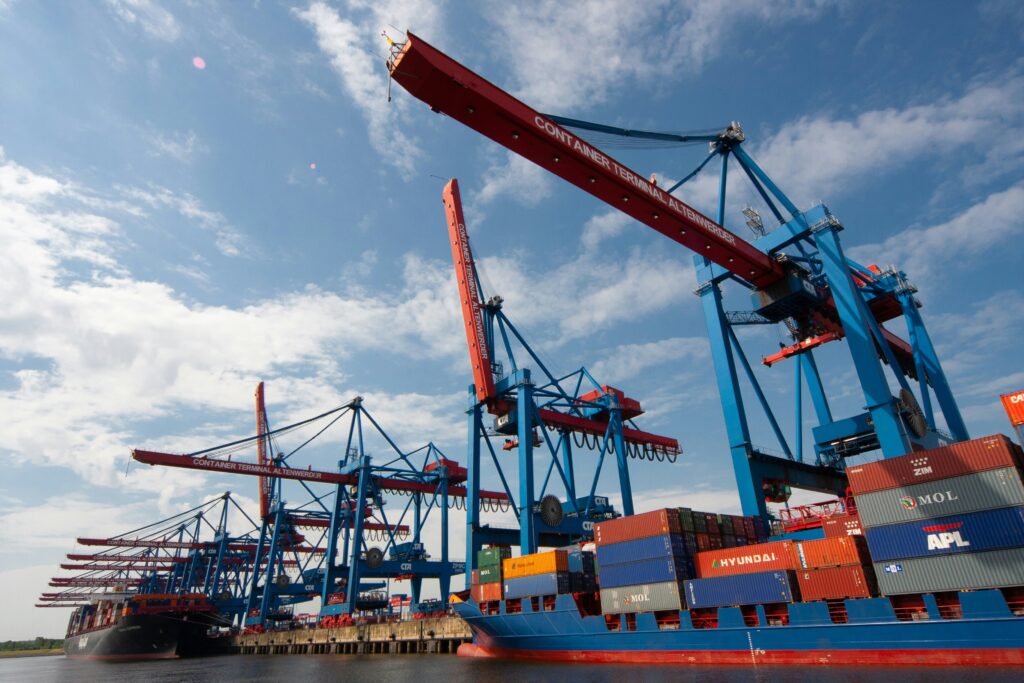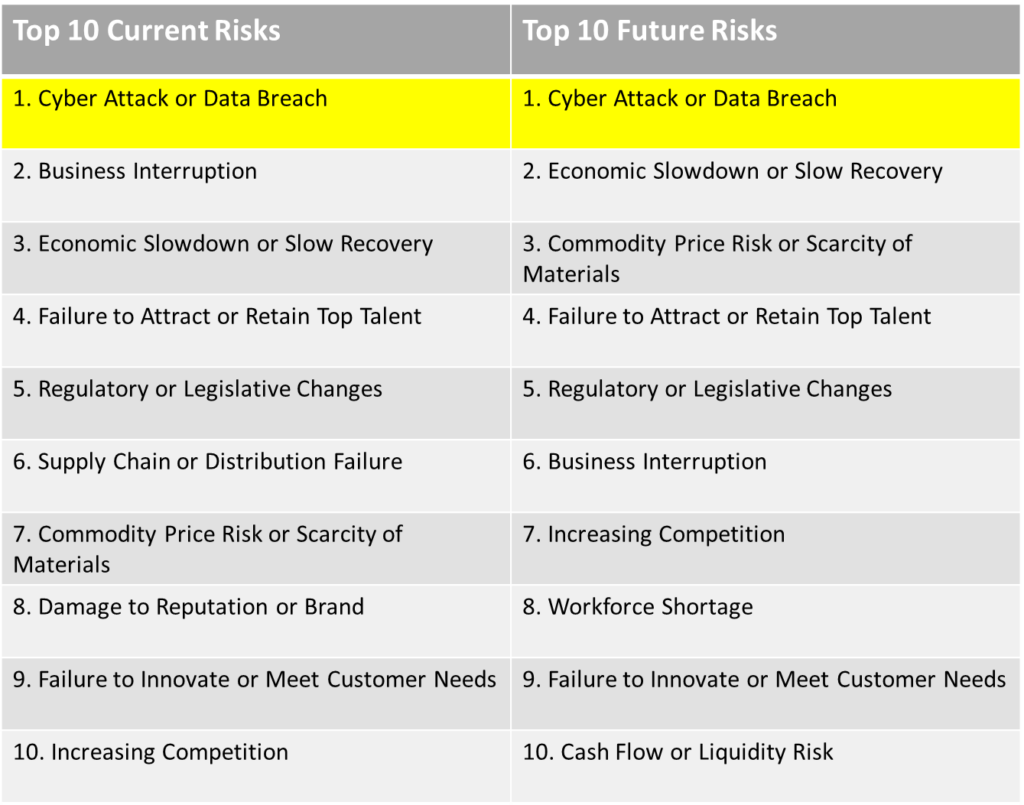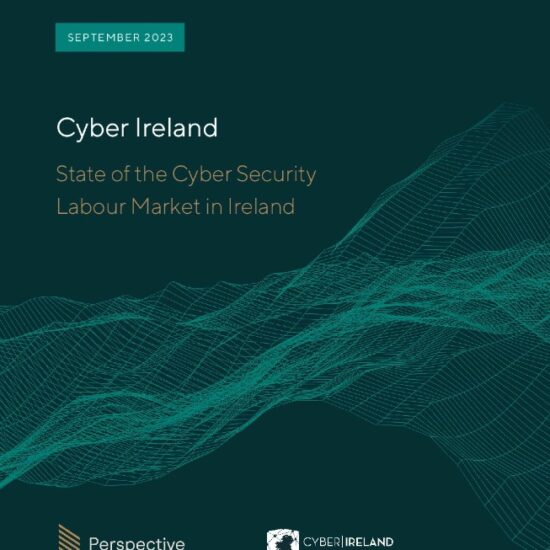Aon’s 2023 Global Risk Management Survey
Aon’s 2023 Global Risk Management Survey: Navigating Cybersecurity and AI in a Transforming World
 In an era where digital transformation is accelerating, cybersecurity and artificial intelligence (AI) related risks are evolving rapidly and therefore it’s crucial for business leaders to adapt and respond proactively. Aon’s 2023 Global Risk Management Survey provides a comprehensive overview of the risk landscape facing organizations today and in the near future. Key themes include the interconnectedness of various risks and the increasing importance of human capital in risk management. The insights are drawn from a wide range of industry and regional perspectives, highlighting the evolving challenges and strategies in risk management.
In an era where digital transformation is accelerating, cybersecurity and artificial intelligence (AI) related risks are evolving rapidly and therefore it’s crucial for business leaders to adapt and respond proactively. Aon’s 2023 Global Risk Management Survey provides a comprehensive overview of the risk landscape facing organizations today and in the near future. Key themes include the interconnectedness of various risks and the increasing importance of human capital in risk management. The insights are drawn from a wide range of industry and regional perspectives, highlighting the evolving challenges and strategies in risk management.
Methodology
The survey, conducted in 11 languages, gathered insights from 2,842 decision-makers, including risk managers and C-suite leaders, across 16 industry clusters in 61 countries/territories. This biennial web-based research report, conducted in June to July 2023, delved into both qualitative and quantitative risk and human capital issues. Participants provided feedback on insurance, risk management, and broader business concerns.
Cyber Threats Today and Tomorrow
- The survey identifies ‘Cyber Attack or Data Breach‘ as the number one global risk currently and predicts it to retain this position by 2026. This reflects the heightened frequency and sophistication of cyber threats, exacerbated by an increasingly interconnected digital landscape. As per the report, cost implications are significant, with enterprise data breaches reaching nearly $4.5 million in costs.
- ‘Failure to Attract or Retain Top Talent‘ stands as the fourth biggest risk. This aspect is crucial as the survey anticipates over half of the cyber events will be caused by human factors by 2025. The rising importance of cybersecurity skills is evident in this context.
- AI emerges as a significant risk, jumping 32 places from its current position to being ranked 17th in future risks. This dramatic rise underlines the growing recognition of AI’s transformative potential and the associated cybersecurity and ethical challenges.

Europe vs Global Perspective
Globally, the survey results emphasize the paramount importance of cybersecurity, with a remarkable readiness level (89%) reported for cyber attack or data breach risks. In Europe, the concern for cybersecurity is equally high, with cyber attack or data breach also ranking as the top current risk. However, European respondents are notably concerned about regulatory or legislative changes, reflecting the region’s stringent data protection and privacy laws. ‘Failure to Attract or Retain Top Talent’ is a shared concern, resonating globally and in Europe, as organizations grapple with the increasing complexity of technology and the need for skilled professionals. AI, as a future risk, is gaining momentum in Europe, indicating a keen awareness of the disruptive potential of AI technologies and the need for robust strategies to manage these emerging challenges.
Proactive Steps for Future-Ready Cybersecurity – Leaders today must navigate a complex landscape where cybersecurity and AI are increasingly critical. Some recommendations from the report:
- Prioritize Cybersecurity as a Strategic Business Imperative: Cybersecurity must be elevated from a technical issue to a strategic business priority and must be regularly discussed at the executive level. Leaders should integrate cybersecurity considerations into all business decisions and foster a risk-aware culture across the organisation. Adopt a robust cybersecurity framework aligned with standards from authoritative bodies like the National Institute of Standards and Technology (NIST) or the Center for Internet Security (CIS). Regularly review and update this framework to address evolving cyber threats, with a particular focus on mitigating ransomware attacks.
- Invest in Talent and Continuous Learning: The human element is a critical factor in both cybersecurity and AI. Aon’s survey highlights the challenge of attracting and retaining top talent as a significant risk. In the context of cybersecurity, investing in skilled personnel and ongoing education is essential to bridge the skills gap and enhance the organisation’s resilience against cyber threats.
- Embrace AI Responsibly and Ethically: AI is rapidly rising as a critical factor in business strategy and risk management. However, its rapid ascent brings new challenges in cybersecurity and ethical implications. The responsible and ethical deployment of AI technology is paramount. As AI climbs 32 places in future risk predictions, per Aon’s survey, organisations must prepare to harness its benefits while mitigating associated risks.
The intertwined nature of cybersecurity and AI presents both challenges and opportunities for modern organisations. By prioritizing cybersecurity at a strategic level, investing in human capital, and embracing AI with a focus on ethical considerations, businesses can navigate these complexities successfully. The key lies in understanding that managing these risks is not a one-time effort but a continuous journey in adapting to an ever-evolving digital landscape.



